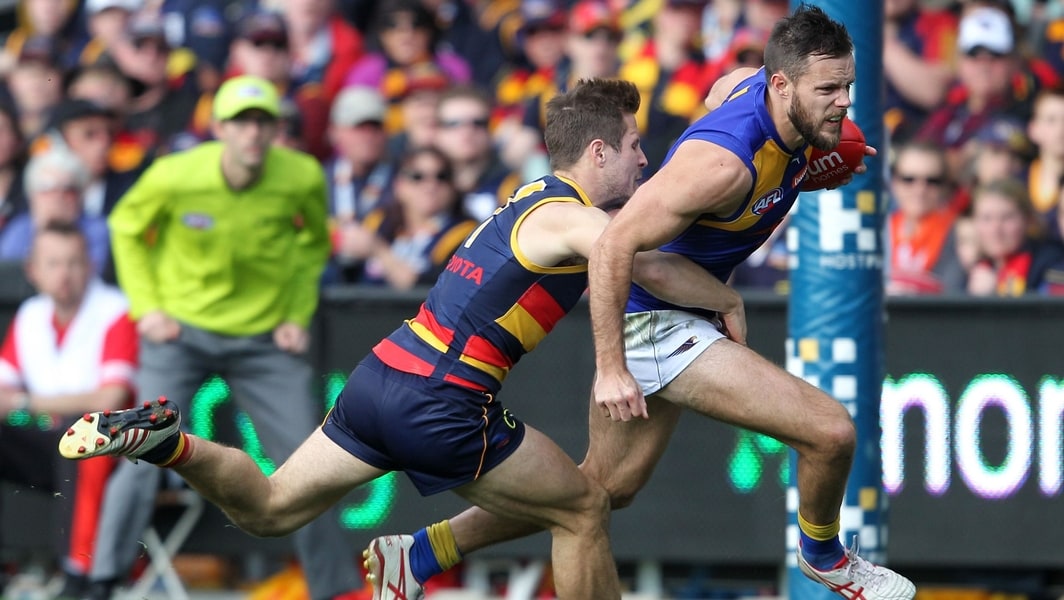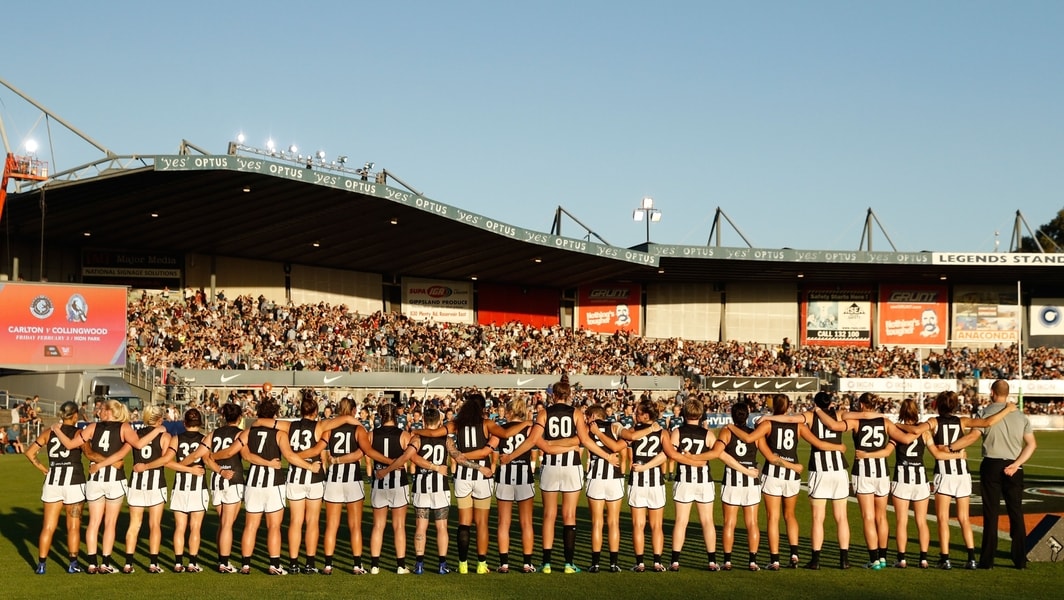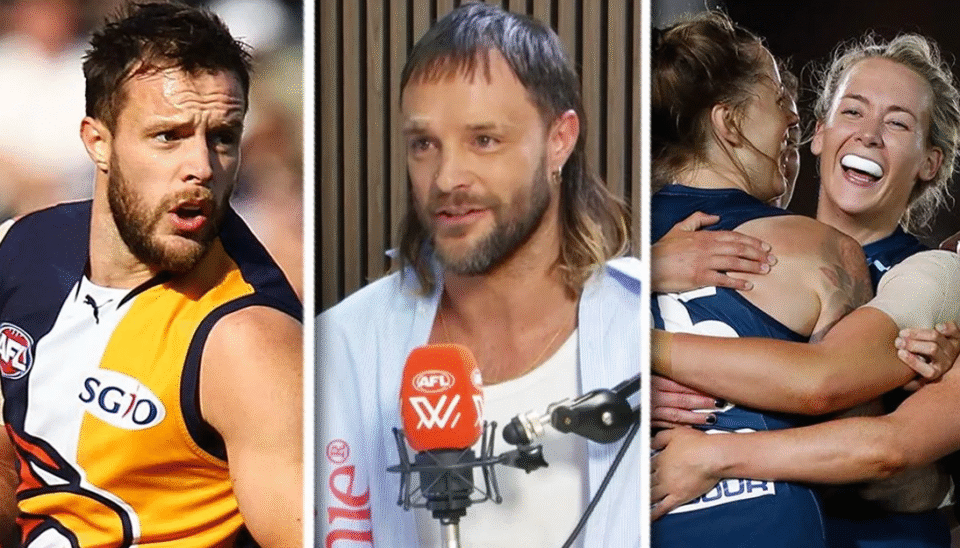WHEN Mitch Brown first came out publicly as a bisexual man, he received two kinds of messages.
The first kind were notes of congratulations, excitement, and comments of bravery. The second? Grief.
Not grief that Brown is openly queer. Rather, grief that those close to him weren’t the kinds of people who he felt he could share his whole self with.
“To go, ‘Hey Mitch, we played with you for such a long time, known you for 20 years, I’m so sorry that I couldn’t provide a space for you to feel like you could be yourself, and I really apologise if I’ve shown casual homophobic behaviours or, you know, that’s made you feel unsafe, and I’m just really sorry about that’,” Brown told AFL.com.au.
“There’s been a lot of those messages, not only teammates, but from family and friends as well, that have known me my whole life.”
It is here where Brown hopes that change and growth can come within the industry. After becoming the first current or former AFL player to openly identify as bisexual, his personal connection to so many still within the football world is now making people reflect a little more closely on how they present as openly welcoming of the queer community.
“I think we can be so deficient in our way of thinking. Like, I won’t show any homophobic behaviour, but then we forget about the safe behaviours that we can show and make that really loud and clear – that speaking out, or not being afraid to be associated with queerness,” Brown said.
“That’s one of the big ones that I’ve been reflecting on in the last five or six weeks … a lot of men in particular, it’s not that they’re innately homophobic or anything, but there is this shying away of being associated with my story or the queer community, in fear that they may be seen as part of that.”

Mitch Brown in action during West Coast’s clash with Adelaide in round 19, 2014. Picture: AFL Photos
Upon retiring in 2016 following 94 games over 10 years with West Coast, Brown quickly moved to Melbourne and found some much-needed space from the game he once loved.
“I just wanted to have this separation from my time in Perth, and that was a geographical separation, and then I stopped communicating with people and teammates. Whether a conscious effort or not, that’s what I did because I just know that I wasn’t myself,” Brown explained.
“I wanted to go find that without the distraction or bias of my footballing past.”
Then on February 3, 2017, he went along to the very first game of AFLW at Ikon Park and a whole world opened up.
“I was there on that first night, the Collingwood and Carlton game, and I had this sense of jealousy,” Brown said on AFL.com.au‘s Tagged.
“I was like, ‘These W players, there’s so much fun there, there is this huge queer representation and not only that, it’s just these amazing, incredible, talented footballers that in my perception, I see them being able to rock up to the game, to their clubs, being fully or close to the people who they are inside, and they feel like they belong.’ And I was just so jealous of that.”

Collingwood players line up ahead of the opening NAB AFL Women’s game against Carlton at Ikon Park in 2017. Picture: AFL Photos
Although he feels like an “accidental spokesperson”, he knows he’s not doing it solo.
“I’m not on my own, I’m stepping up with the W players, the queer community within the AFLW, and the amazing organisations like Queer Town and Minus 18 that have been doing this advocacy for so long, and been doing this hard work in a brave and courageous manner,” Brown said.
Another key to his advocacy has been his partner Lou, who is by his side every step of the way. Both still work full-time jobs, and co-parent Brown’s two children, between media commitments and education sessions.
View this post on Instagram
“Sometimes your brain is just all over the place,” Brown admitted.
“From one aspect, it’s like normal programming in life… (people) see me doing everything at the moment, but working full-time and then trying to be really conscious about your messaging and trying to create the really strength-based language and not outlining the negative stuff so much, but still not shying away from it.
“So, it’s a lot, and then because you’re doing a lot of media, or talking to a lot of people, the fear of being taken out of context, or some news, the outlets want to headline grab and will use not safe language in my eyes, and that opens both of us up to the homophobia, queerphobia, and just general hate.”
As the AFLW celebrates its fortnight of Pride, Brown views the League, its players, and staff as leaders when it comes to inclusivity and acceptance, hoping the men’s programs can follow suit.
“It’s not coming out, it’s being invited in, and Lou and I have felt that. It’s the queer community, the AFLW community, and it’s obviously Pride Rounds. We’re feeling really f—ing good at the moment because there’s so much love and support,” Brown said.
“It’s like I’ve got this awesome, amazing family, army with me, and one that makes you feel really bloody good. And then it just gives you strength that you know you are doing a thing that is right and is impactful and you do have a place in this, and a voice in this.”


